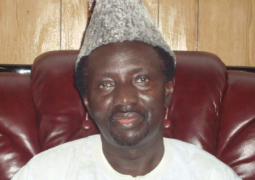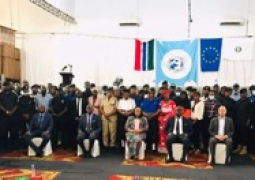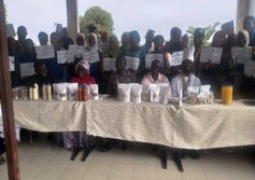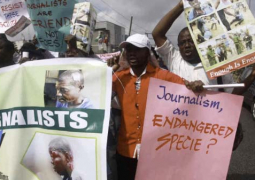Alarmingly, the fear rang true for 53% of migrants surveyed in Honduras, 62% in Mali and 72% in Niger.
Abdoulie Fye, Director of Programmes and Operations at The Gambia Red Cross Society said: “The Gambia Red Cross Society (GRCS) work to build trust among migrants by working with migrants as volunteers and is actively involving them in the operations of the National Society, which builds trust between the migrants and the society; capacity building programs for migrant associations/groups to raise awareness of the risks/dangers along migratory routes and how they could access basic essential humanitarian and protection services provided by the Red Cross. This also strengthens the relationship and builds the confidence of migrants towards the GRCS; providing legal registration support to migrant organisations/associations to ensure their legal recognition by government authorities; mainstreaming of CEA in all migration-related programs/activities,and ensuring strong existing trust between the host communities of migrants and the Red Cross further enhances the trust with the migrants.”
Another stark finding was the high level of unmet needs throughout migrants’ journeys. While almost half (44%) of migrants surveyed reported having received some form of assistance and protection at one stage of their journey, more than three quarters (79%) reported needing assistance and protection at another time but not receiving it. One clear issue of note is that 40% of those surveyed did not know where or how to access humanitarian assistance and protection, underscoring the need for outreach initiatives around existing services.
The report found that in The Gambia 72% of migrants involved believe Red Cross and Red Crescent staff and volunteers are equipped to understand and respond to migrants' needs while 85% believe Red Cross and Red Crescent treats migrants with respect and dignity. “It is therefore important to improve migrants’ effective access to understandable, relevant and reliable information on services, protection, assistance, and support available along their journeys.”
More than a quarter (28%) of all migrants involved in the research had received humanitarian assistance and protection from Red Cross and Red Crescent teams, among other providers. The majority (62%) of migrants who had received any form of humanitarian assistance and protection during their journeys noted it was from Red Cross and Red Crescent teams.
The report, ‘Migrants Perspectives: Building Trust in Humanitarian Action,’ was produced by Red Cross Red Crescent Global Migration Lab and hosted by the Australian Red Cross, with 15 National Red Cross and Red Crescent Societies from Argentina, Australia,Finland, France, The Gambia, Honduras, Maldives, Mali, Niger, South Africa, Sri Lanka, Sudan, Sweden, Türkiye and Zambia surveying or interviewing almost 17,000 migrants.
Dr. Ceesay whilst entrusting the two facilities to the Fisheries Ministry reiterated FAO’s readiness to continue to partner with The Gambian government in enhancing food security and nutrition, he encouraged proper upkeep of the new smokehouses.
“Listening and responding to the perspectives and experiences of migrants is in itself the best way to build trust. It also enables humanitarian organisations to better understand where gaps and needs exist and how to adapt assistance and protection to ensure it responds to the needs of the most vulnerable.”
Read Other Articles In National News





